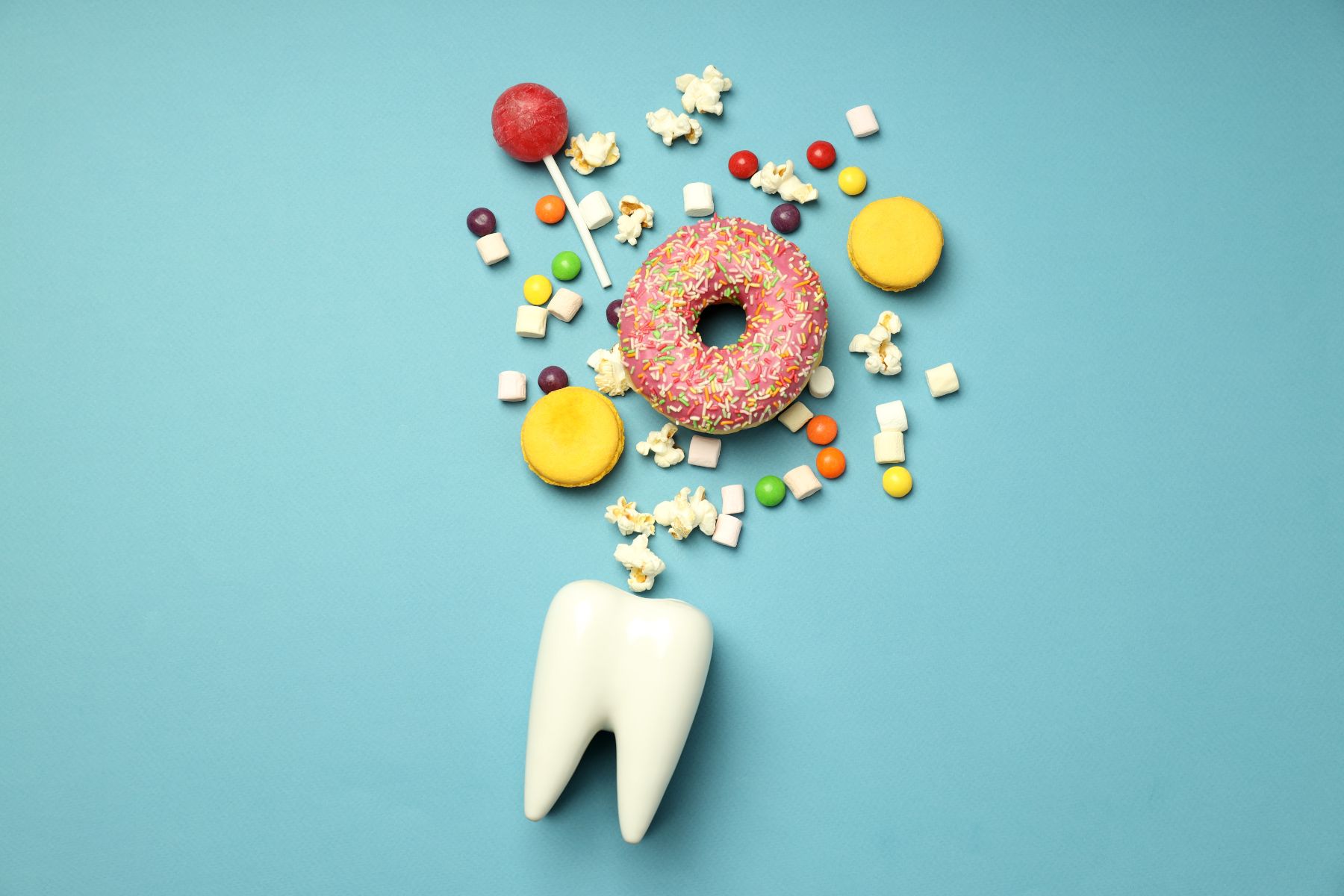
19 Jul 7 Ways Diabetes Affects Your Oral Health
It’s estimated that nearly 422 million people around the world have diabetes. This condition brings on an array of health problems for individuals who develop it.
Many people are aware that it can cause damage to blood vessels, as well as problems with kidneys, feet, and nerves. Unfortunately, some of the symptoms are more well-known than others. For example, many people aren’t aware that diabetes can seriously affect your oral health.
So, what are some of the ways? And how can you protect your oral health if you have diabetes? In this oral health tips guide, we’ll answer these questions by going over seven of the ways diabetes can influence your overall oral health.
1. Increases Chance of Gum Disease
When you have diabetes it will cause the saliva in your mouth to contain more sugar. Not only that, but it can also lead to bacteria that produce acid in your mouth and can cause gum disease.
Both things, along with plaque from leftover food particles, can lead to gum disease. The first stage of gum disease is gingivitis. However, if you’re not careful it can quickly progress to more serious periodontal disease and advanced periodontal disease.
This condition is extremely common, affecting one out of four adults over the age of thirty. And, if you have diabetes, those odds increase exponentially,
2. Causes Dry Mouth
One of the biggest ways that diabetes affects your oral health is by causing a dry mouth as diabetes results in far less saliva production. That’s a problem because saliva is essential for our oral health.
Our saliva is responsible for washing away food particles, fighting bacteria growth, and eliminating some of the acid that’s produced by bacteria.
As such, when people with diabetes have dry mouths, it can lead to many gum, teeth, and fungal problems.
3. Leads to Oral Fungal Infections
Both the high glucose levels in saliva and dry mouth, along with an overall decreased resistance to infection, can result in fungal infections. Specifically, this is caused by the overgrowth of Candida albicans.
This leads to an infection which is referred to as oral thrush. Not only are oral infections uncomfortable, but they can also be unsightly.
They can cause ulcer patches to appear around the skin in the mouth. Often, they’ll require antifungal medications to treat.
4. Higher Rates of Tooth Decay
Dry mouths, high glucose levels, and plaque can also result in tooth decay and cavities. As such, people with diabetes need to pay close attention to their dental cleanings.
If caught early, these can often be treated easily. However, it can also lead to rotting tissue found inside the tooth. When this occurs, the solution is to either lose the tooth or get a root canal procedure.
5. Mouth Wounds Heal Slower
People with diabetes tend to heal slower than those without. This is due to a variety of factors, including:
- Poor immune system health
- High blood sugar
- Bad circulation
- Frequent infections
As such, when you experience swelling or bleeding in your mouth, it will likely take a while for it to go away.
It’s wise to have any mouth wounds monitored by our dentists. Otherwise, they have the potential to progress into something much more serious.
6. Higher Rates of Mouth Ulcers
Anyone who’s had mouth ulcers knows how painful they are. This occurs when the lining tissue around your mouth erodes. If you bite the inside of your cheek or experience a similar mouth injury, it can quickly develop into them.
Unfortunately, they can also be caused by poor immune systems. This is a big problem because as we mentioned in the last section, mouth wounds heal slower for people with diabetes.
7. Causes Bad Breath
Bacteria growth and gum disease caused by diabetes also have another nasty side effect: bad breath. Unfortunately, this bad breath might only be noticeable for others and not you.
As such, you will need to treat the underlying condition if you want to get rid of it.
How to Protect Your Oral Health When You Have Diabetes
The good news is that managing your oral health with diabetes is doable! The first step is to follow a diet approved by your doctor, while also taking any medication to manage your condition.
Make sure you brush your teeth at least twice per day (preferably in between meals) while also flossing regularly. Visit our dentists every six months for optimal oral hygiene.
Tell us about your condition so that we have the full context for providing you with care. As we mentioned, diabetes can cause dry mouths which leads to a variety of oral problems.
To combat this, you can drink a lot of water throughout the day and limit your overall caffeine intake or try chewing some sugar-free gum to stimulate saliva production.
Lastly, if you smoke cigarettes, do your best to quit. Not only does this practice worsen your oral health but it can also exasperate your diabetes. Remember that you oral health and overall wellness are tied together. So, when you take care of your teeth it can also help improve your diabetes symptoms, and vice versa.
Need Personalized Dental Care? Contact McIlwain Dental Specialists
We hope this guide helped you learn more about how diabetes can affect your oral health. The best way to deal with dental problems brought on by the condition is to deal with the problem head-on.
Here at McIlwain Dental Specialists, we can help target any potential problems your diabetes might cause for your oral health early on.
That way, we can focus on preventative dental care for diabetics. So, if you’re ready to get the personalized care you need, contact us today.


